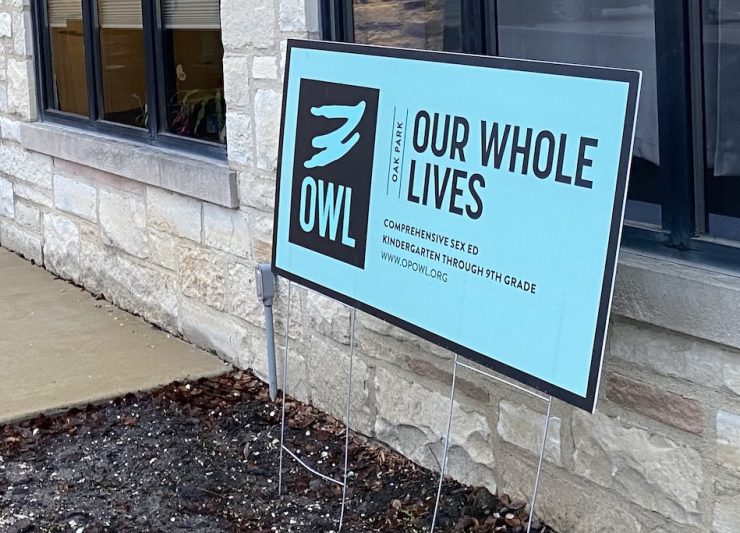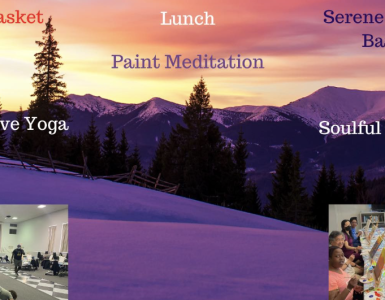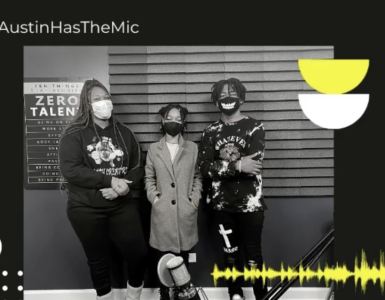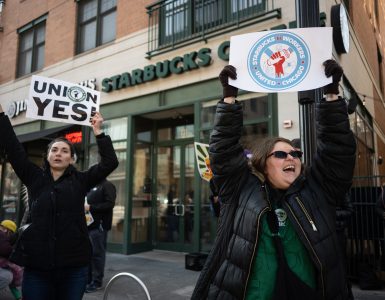By Helen Quinn-Pasin
Aaron McManus is a facilitator for Oak Park Our Whole Lives (OPOWL), a comprehensive sexuality education program for youth and their families. They knew the class they were facilitating was impactful, but then a student’s parents reached out and said something that really struck them.
“Your class saved my child’s life.”
McManus didn’t realize the impact this class had had on this quiet student until their parents shared this. Since then, McManus has remained in touch with this student and their parents as a resource. Sexuality education can be challenging, complex, and difficult for many families to navigate, but it can also change lives.
Our Whole Lives (OWL) is a national organization rooted in the belief that honest and accurate sexuality education is comprehensive, inclusive, and holistic. McManus has been facilitating since 2018, and has a 10-year-old child who loves attending the program. McManus said the facilitator training was one of the best things they’ve ever gone through. Facilitating allows them to go in-depth with the seventh, eighth, and ninth-graders on the entire spectrum of consent, including practicing consent in non-sexual areas. It’s also common for students to have questions about the LGBTQ+ community. As a part of this community, McManus speaks personally about coming out, discrimination, and even suicide prevention. Throughout their years as a facilitator, McManus has learned that the impact of these conversations is immeasurable.
OWL’s curriculum is for all life stages and starts as young as kindergarten because “good sexuality education takes time, especially in a culture which is raising its consciousness regarding sexual harassment, assault, and toxic gender roles and expectations,” as stated on OWL’s website.
Comprehensive sexuality education is an “age-appropriate, culturally relevant approach to teaching about sexuality and relationships by providing scientifically accurate, realistic, non-judgemental information,” as defined by UNESCO.
Locally, OPOWL is the only program that offers comprehensive sexuality education and a holistic approach to sex ed for kindergarten through ninth-grade youth and their parents. Many Oak Park area youth have taken classes in school through the only other sex-ed program in the area, Candor Health Education, formerly known as Robert Crowne, located in Hinsdale. Candor offers courses on puberty, human reproduction, and teen sexual health, covering several of the same topics as OPOWL. But, Candor doesn’t follow a comprehensive sexuality education model. While OWL has an emphasis on values, Candor has an emphasis on not teaching morality and sticking to science and medical terms exclusively. Some participants of OPOWL even commute to Oak Park from broader suburbs and Chicago to attend the unique program.
The Unitarian Universalist Association (UUA) and the United Church of Christ (UCC) developed the first OWL curriculum in the 1970s. Today, OWL chapters exist throughout the country at congregations, community centers, schools, and more. Although groups of faith founded OWL, the curriculum does not include religious or faith-based content, and OPOWL is an entirely secular organization.
In 2016, Oak Park parents Nara Nayar and Nina Brewer-Davis saw a need for quality comprehensive sex education and founded OPOWL. Brewer-Davis also serves as the director. While recent laws have increased the requirements for sex ed in Illinois, the founders understand that teachers have a lot of state requirements to cover. Sex ed doesn’t always get the time and space they believe is necessary to create a safe and accepting approach to gender, sexual and reproductive health, sexual rights, pleasure, violence, diversity, and relationships.
There are two essential components to every OPOWL classroom: the word bank and the question box. Students are introduced to new vocabulary words in each class. For example, the words for one fourth and fifth-grade lesson include puberty, reproduction, gender, prejudice, values, and social power. Facilitators and students take turns reading the definitions and asking students questions about how these words relate to their lives or society at large. According to facilitators, students often share how the stereotypes applied to them are hurtful and untrue, or they ask questions about what to expect during puberty.
The other essential component of each classroom is the question box. At the end of each class, students write down anonymous questions, often about the day’s lesson or sexuality in general. Questions might be about something they heard online or at school, or concerns about going through puberty. The following week, facilitators will answer the questions at the beginning of each class. Fourth and fifth-grade facilitator Nikhil Trivedi puts a lot of thought into each question throughout the week. He appreciates how the kids can ask honest questions with an adult who will answer truthfully without judgment.
Trivedi is passionate about sexual violence prevention and previously served as a medical rape victim advocate with Resilience, a non-profit that supports survivors of sexual violence.
“Once I moved to Oak Park and started a family, I wanted to make sure that my kid had space to ask questions and learn about some of the stuff that I felt like I missed when I was a kid,” says Trivedi, whose child also attends the program. “OWL encourages kids to be honest and vulnerable about questions they have and what they are experiencing with their peers.” Trivedi believes the program prepares students with more context and self-awareness for peer conversations that reflect sexism and stereotypes. “They’ve already learned about these concepts in a space that is probably safer than a locker room.”
Multiple studies find that sex education programs that address issues of gender and power are more likely to result in significant positive effects on health outcomes, such as reductions in sexually transmitted infections and unintended pregnancy, compared to programs that ignore gender and power.
“The mission of OWL is to teach critical thinking skills in the healthiest way possible, to help kids understand the tools for safe relationships with themselves and others,” says facilitator coordinator Meredith Farster, who has been with OPOWL since its founding in 2016. “We believe in true informed consent, we provide the information, and then we have the responsibility to use that information to make good decisions.”
Brewer-Davis finds the time and space that OPOWL creates invaluable. Programs are between eight and twelve weeks long, allowing students to build trust with peers and facilitators to have honest conversations around complicated topics. Initial discussions can be awkward, but students are allowed to get their giggles out, break the ice, and move into authentic and vital conversations. OWL facilitators work to set the tone for an informed discussion about sexuality that’s free of toxicity and stigma.
The OPOWL parent community expanded during the initial phases of the COVID-19 pandemic. OPOWL paused youth classes due to concerns about how effectively they could reach youth virtually on such a sensitive and personal topic. Instead, they hosted over 30 virtual parent workshops, which continue today. Parents attend a mandatory orientation where they are briefed on what students will be covering, connect with other parents, and address questions and concerns with facilitators.
“Kids learn more from their primary caregivers than they ever could in a classroom,” says Brewer-Davis as she emphasizes the role of parents as the primary sex educators.
Despite the research that backs up the effectiveness of programs like OWL, it has received backlash. In February 2022, an OPOWL facilitator received online death threats and threats to their residential safety. The board of directors stated that the incident had been reported to the police and that “Hate-filled incidents such as these only serve to emphasize the need for holistic sexuality education in our community. Education is the number one way to protect children from sexual abuse. Educating children and youth about sexuality empowers them to recognize and enforce their own boundaries about their bodies.”
As violent rhetoric and attacks on the LGBTQ+ community rise across the country, programs like OWL can provide a much-needed safe space, even in traditionally progressive states like Illinois, which had the third-highest number of drag events targeted by protests and threats this past year. The world’s largest LGBTQ+ media advocacy organization GLADD released a 2022 study that found 141 incidents of anti-LGBTQ+ protests and threats targeting drag and Pride events, and false claims against the community displayed in campaign ads for the midterm elections. The analysis shows increasingly violent incidents throughout the year.
After the death threat incident last February, OPOWL parents wrote a letter to the Wednesday Journal in solidarity with OPOWL and condemning the attacks, calling the curriculum “life-saving” for their children. Parents also noted that a week prior, a workshop on gender equity, organized by District 97’s DivCo, also faced severe harassment when hateful words and images disrupted their workshop. Parents wrote: “We also value how this education helps children learn the values of inclusion, respect, and diversity that must be central to our community.”
